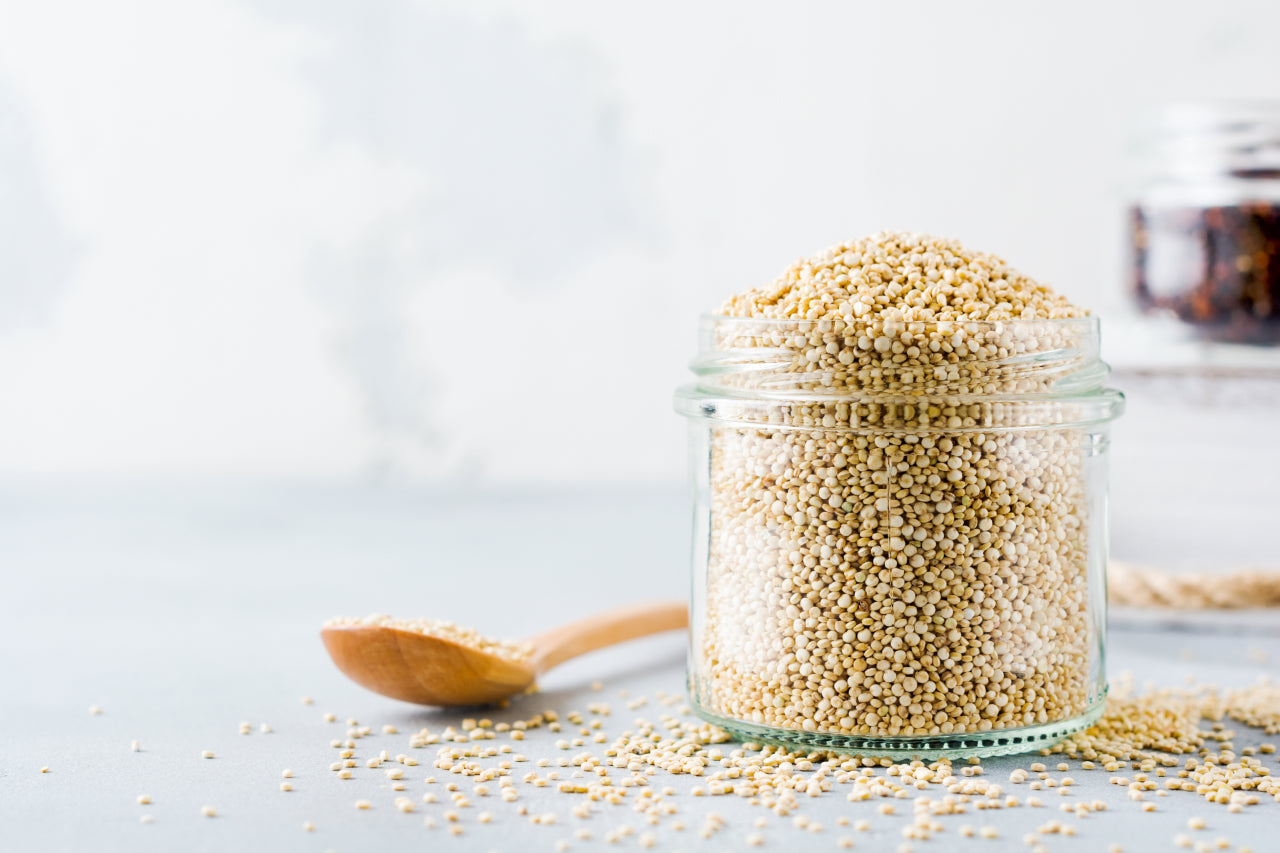
Can Dogs Eat Quinoa?
In short- yes! Quinoa is safe for dogs to eat in moderation as long as they do not have an allergy or intolerance to it.
What Is Quinoa?
Quinoa (pronounced keen-wah) is a pseudo-cereal that's often mistaken for a grain due to its similar nutritional profile and culinary uses. It's native to South America and is celebrated for its high protein content, essential amino acids, and rich array of vitamins and minerals. It also has more fiber than most other grains which makes quinoa an ideal food for weight management.
Not only is quinoa safe for most dogs, but it may provide several benefits for your pup!
What Are The Health Benefits Of Quinoa For Dogs?
Quinoa boasts several potential benefits that align with a dog's nutritional needs. Firstly, its protein-rich nature could contribute to muscle development and overall health in dogs, particularly those with higher protein requirements. Additionally, quinoa provides plenty of dietary fiber to help your dog feel full and reduce their chance of developing obesity as adults. Fiber also aids in promoting healthy digestion and regular bowel movements in our furry friends, addressing common gastrointestinal concerns.
Furthermore, quinoa is a source of various essential vitamins and minerals, including B-vitamins, vitamin E, magnesium, phosphorus, and iron. These elements play integral roles in maintaining robust bones, supporting metabolism, and bolstering the immune system. A notable feature of quinoa is its relatively low glycemic index, potentially providing a sustained release of energy without causing unhealthy spikes in blood sugar levels. This attribute could be advantageous for dogs with diabetes or those prone to obesity.
How to Introduce Quinoa to Your Dog
Before rushing to introduce quinoa into your dog's diet, it's essential to consider a few key points. Dogs, like humans, can have food allergies or sensitivities. Observing your dog closely for any adverse reactions, such as vomiting, diarrhea or itching is crucial when introducing new foods. Additionally, while quinoa's nutritional profile is impressive, it should not replace a balanced diet tailored to your dog's specific nutritional requirements. Quinoa can serve as an occasional treat or supplement, but it should not be the primary food source for your dog.
When incorporating quinoa into your dog's diet, preparation is vital. Opt for plain, cooked quinoa without any seasoning, spices, salt, or additives that might be harmful to your pet's health. As with the introduction of any new food, consult your veterinarian before feeding your dog quinoa. A veterinarian can offer personalized guidance based on your dog's age, size, health condition, and dietary needs, ensuring that the introduction of quinoa aligns with their overall well-being.
Every Dog is an Individual
While quinoa does offer potential nutritional benefits for dogs, it's crucial to approach this dietary addition with caution and prudence. Understanding your dog's individual needs and consulting your veterinarian will empower you to make informed decisions that positively impact your dog's health. As responsible pet owners, we aim to provide our dogs with the best care possible, and that includes offering them safe and nutritious food choices.




























